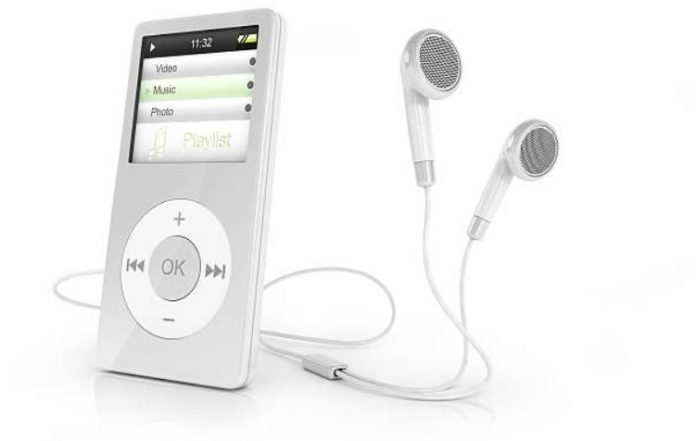By now you’ve probably heard of the term “mp3 player”. By definition, an mp3 player is a device that plays audio files that are encoded using MPEG-1 Audio Layer 3, a term which has been shortened to “mp3”.
An mp3 is a digital audio and compression format that was designed to minimize the data required to represent an audio while retaining the purity and quality of the original (uncompressed) audio.
A team of German engineers created the mp3 format and it was made the ISO standard 1991.
Another term for mp3 player is digital audio player (DAP). A DAP can actually perform more tasks than simply playing mp3 files.
It can organize and store digital audio files as well as play them. Another common audio format DAP’s can play are WMA files, which is a compressed audio file format developed by Microsoft. WMA is a popular format that is supported by many devices.
Mp3 players are very portable and range in size. Some are so small they can fit on a key chain while others can be held in two hands (typically, these devices play video as well).
In addition to hearing “mp3 player”, you may have also heard of terms such as “flash players” or “flash mp3 players”. This is simply a type of digital audio player.
There are, in fact, 3 different types of digital audio players:
Flash mp3 players:
“Flash” refers to the type of memory. Flash memory is a type of electronic memory media (card) that retains stored information even when not powered (like your computer’s hard disk). It’s also used in other devices such as digital cameras.
In many devices, the flash memory card can either be internal (non-removable) or external (removable as with digital cameras).
Pros: Flash mp3 players are better than their hard-drive counterparts because they contain no moving parts and are great for use with exercise and active lifestyles (jogging, etc.). They are available in many compact sizes such as being able to fit on your key chain.
Cons: They are more limited in storage capacity than hard-drive players – max of 8 GB.
Hard-drive mp3 players:
These are also referred to as “Digital Jukeboxes”. These devices contain small hard disk (some as small as 1″ in diameter), similar to your computer’s hard disk storage.
Audio files are accessed and read from this hard disk. These devices have a wider range of storage capacity – up to 100 GB as of this writing.
Hard-drive players are great for those that would like to store their entire music library on their mp3 player.
As this technology matures these devices include more video and image support. You can watch full feature-length movies and TV shows on some devices.
Hard-drive mp3 players range in size from fitting in the palm of your hand to needing both hands.
Pros: Larger capacity allows for storage of entire music collections on single mp3 player. Can store and playback video (movies, tv shows) and images.
Cons: Contain moving parts so are not as good for active lifestyles (exercise).
Mp3 CD Players:
These devices can play both CDs and digital audio (mp3, wma, etc.). Some users prefer to create their own CD from a collection of audio files they’ve downloaded or grabbed from another CD.
As time passes, consumers are jumping more on the flash and hard-disk mp3 players. When shopping for an mp3 player, it can be overwhelming because manufacturers seem to be introducing more and more models to the marketplace every month.
It’s important to understand what your needs and desires are before buying one just for the color, style or physical size.

